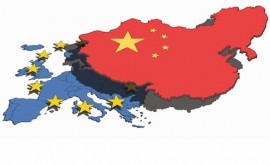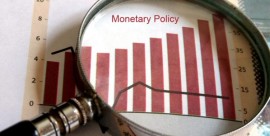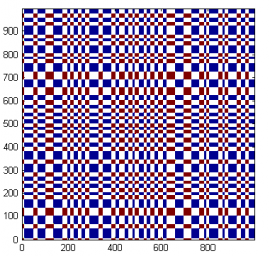- Fecha(s): 18/02/2016
- Lugar: Seminario del Departamento de Economía Aplicada, UMU. Se retransmitirá en directo.
- Ponente: Manuel Pérez-García

Abstract: In the last decade the approaches of the global history have been emphasized in order to visualize the progress, form and method which historians have undertaken when carrying out ambitious research projects to analyse and compare diverse geographical and cultural areas of Asia and Europe. But when dealing with comparisons and cross-cultural studies in…
- Fecha(s): 12/02/2016
- Lugar: Aula Seminario Tino Martínez Gallur (Fundamentos del Análisis Económico) B2/02 (retransmisión en directo prevista)
- Ponente: Manuel García-Santana (Universidad Pompeu Fabra)

Abstract Spanish GDP grew at an average rate of 3.5% per year during the expansion of 1995- 2007, above the EU average of 2.2%. However, this growth was based on factor accumulation rather than productivity gains. In particular, TFP fell at an annual rate of 0.7%, while it increased at 0.4% in the EU and…
- Fecha(s): 11/02/2016
- Lugar: Seminario del Departamento de Métodos Cuantitativos para la Economía y Empresa, UMU. Retransmisión en directo pendiente de confirmación.
- Ponente: Matteo Ciccarelli, Banco Central Europeo Frankfurt

Abstract: This paper analyses the transmission of monetary policy to bank lending conditions during the period of financial and sovereign debt crisis in the euro area. A unique bank-level dataset is used to capture the main channels through which standard and non-standard monetary policy measures propagates to the lending behaviour of individual banks. The results…
- Fecha(s): 22/01/2016
- Lugar: Seminario del Departamento de Métodos Cuantitativos para la Economía y Empresa, UMU. Retransmisión en directo pendiente confirmar.
- Ponente: Rafael Valero. Universidad de Alicante

Abstract The aim of this paper is to create counterfactual series in a reliable way and illustrate its use. The present literature is dominated by the Synthetic Control Method (SCM), but there are cases where it cannot perform and it was not created considering the trade-off between bias and variance, hence the accuracy of results…
- Referencia: y Feijóo, C: “Techno-economic implications of the mass-market uptake of mobile data services: Requirements for next generation mobile networks”. 2016, Telematics and Informatics. An interdisciplinary journal on the social impacts of new technologies, vol. 33, nº 2, pp. 600-612.
ABSTRACT The growth of the mobile data services market is no longer dependent on push strategies from suppliers. On the contrary, demand is now driving the market to the extent that it will not be easy for mobile operating companies to cope up with the demand to come in the near future. Operators are forced…
- Fecha(s): 04/12/2015
- Lugar: Seminario del Departamento de Métodos Cuantitativos para la Economía y Empresa, UMU. Retransmisión en directo.
- Ponente: José A. García-Martínez, Universidad Miguel Hernández

Abstract This paper proposes a theory of media silence. The argument is that news organizations have the power to raise public concern and so affect the probability that there is ex-post verification of the true state of the world. Following the seminal article by Gentzkow and Shapiro (2006), we consider a newspaper that seeks to…
- Fecha(s): 27/11/2015
- Lugar: Seminario del Departamento de Métodos Cuantitativos para la Economía y Empresa, UMU. Retransmisión en directo.
- Ponente: Mª del Mar Sánchez de la Vega, Universidad de Murcia

Abstract This paper analyzes the rejection of tax fraud in Spain before and after the Great Depression and studies the role of certain determinants of two categories: internal or individual, and contextual, social or institutional. We use a logit model obtaining that the rejection of tax evasion depends positively on individual variables such as age…
- Fecha(s): 19/11/2015
- Lugar: Seminario del Departamento de Economía Aplicada, UMU.
- Ponente: Fernando Collantes

Abstract ¿Por qué, aún tras la Segunda Guerra Mundial, persistía en la Europa mediterránea una dieta en la que los alimentos de origen animal tenían escasa importancia? El objetivo de este artículo es contribuir a responder esta pregunta a través de un estudio de las causas por las cuales el consumo de productos lácteos (una…
- Fecha(s): 13/11/2015
- Lugar: Seminario del Departamento de Métodos Cuantitativos para la Economía y Empresa, UMU. Retransmisión en directo.
- Ponente: Mª Victoria Caballero Pintado, Universidad de Murcia

Abstract Análogamente a como los gráficos de recurrencia permiten visualizar la correlación integral de una serie temporal, definimos la herramienta gráfica para la correlación integral simbólica de una serie vectorial, son los gráficos de recurrencia simbólicos y gráficos de recurrencia simbólicos coloreados.Estos gráficos informan sobre la estructura de la serie como se ilustrara con distintos…
- Fecha(s): 06/11/2015
- Lugar: Seminario del Departamento de Economía Aplicada, UMU. Se retransmitirá en directo.
- Ponente: Carmen Díaz-Roldán

Abstract I Parte: Presentación teórica. Modelos macroeconómicos para una unión monetaria En esta sección se va a presentar un marco general para el análisis macroeconómico. Para ello se desarrollará un modelo de carácter autocontenido, que tras describir una economía cerrada por el lado de la oferta y la demanda, se ampliará para poder representar una…










